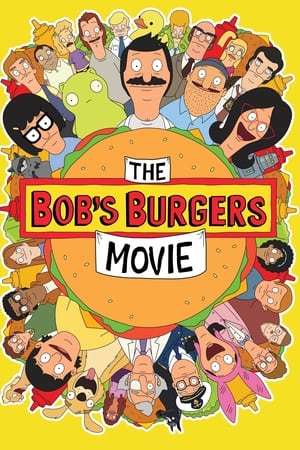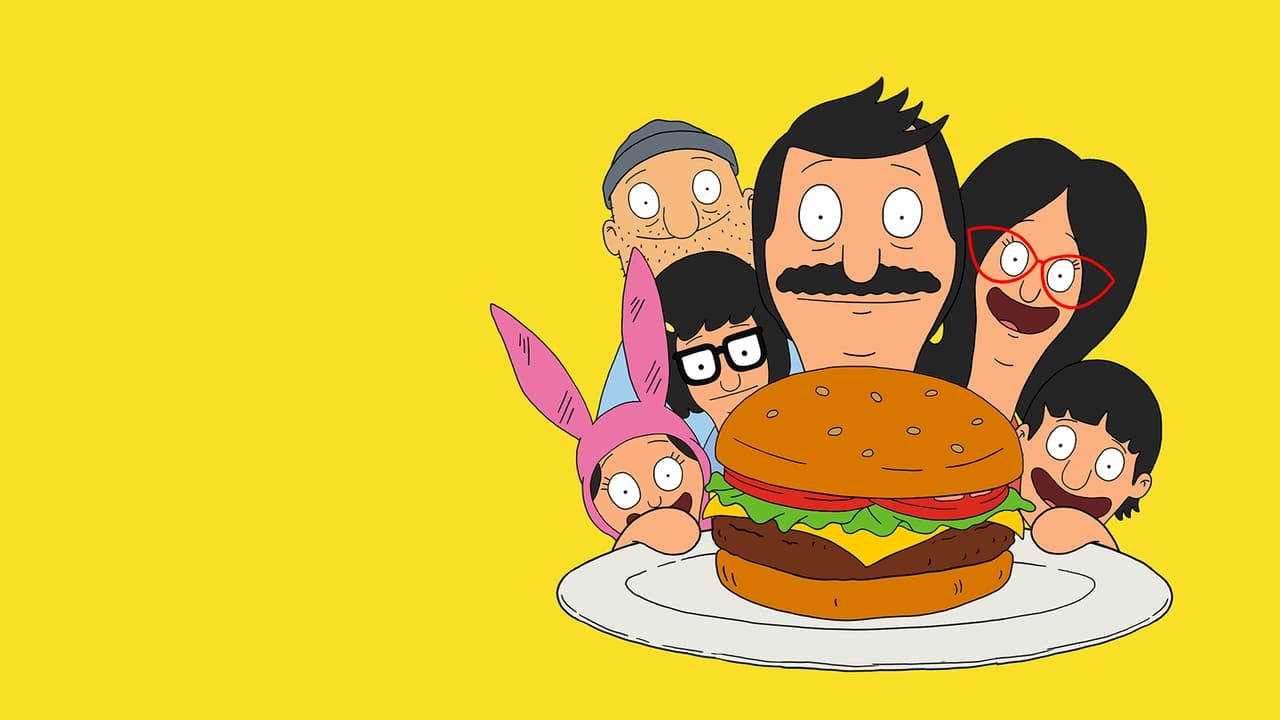
Why make a feature film based on a TV show? Sometimes, it’s an act of resurrection: Star Trek, Twin Peaks and Veronica Mars all got movies inviting viewers to spend more time in their respective worlds (though David Lynch gave casual fans much more than they bargained for). If the show is ongoing, a big-screen installment can temporarily provide its creators with a more extravagant budget (The X-Files) or an opportunity for extended experimentation (SpongeBob SquarePants). Occasionally, though, the answer to Why?” is simply “Why not?” That’s definitely true of The Bob’s Burgers Movie, an ostensible motion picture that’s really just a supersized episode of the animated sitcom, offering exactly the same pleasures at just shy of five times the duration. Arriving immediately after the season 12 finale (though its release was delayed two years by the pandemic), it doesn’t even qualify as rejuvenation à la The Simpsons Movie, since Bob’s Burgers hasn’t gone remotely as far downhill as The Simpsons already had by 2007. (Little did we know back then—between seasons 18 and 19!—that the movie would eventually be smack in the middle of the show’s apparently eternal run.)
Whether “the same, only more of it” sounds worthy of a trip to the multiplex likely depends upon how big of a fan one is. (Having seen the entirety of Bob’s Burgers to date, I’m in a poor position to judge whether it serves as a good entry point for newcomers. Didn’t notice many jokes that rely upon prior knowledge, but those might not even register after 238 episodes.) Rather than waste time laboriously introducing the Belcher family, the film gets right to this particular installment’s primary and secondary complications. First, we learn that the titular restaurant will go under unless Bob (H. Jon Benjamin) and his wife Linda (John Roberts) can somehow come up with a sizable chunk of money they owe to the bank, which has declined to give them another payment extension. Then, a huge sinkhole opens up in front of the building, making it impossible for customers to get in via the front door. This sets up the show’s standard parallel storylines. In the A plot, Bob and Linda, with the help of regular doofus customer Teddy (Larry Murphy), create a portable grill that will allow them to sell burgers at the nearby Wonder Wharf. Meanwhile, their three kids—boy-crazy 13-year-old Tina (Dan Mintz—yes, two of the three main female characters are performed by men; somehow, that hasn’t sparked controversy), harmlessly deranged 11-year-old Gene (Eugene Mirman), and endlessly mischievous 9-year-old Louise (Kristen Schaal)—get involved in a B plot that sees Louise descend into the sinkhole and discover a human skeleton, turning what had been a construction site into a potential crime scene.
That synopsis omits some key elements, most notably the kids’ respective (and equally standard) emotional crises: Tina is anxious about her non-relationship with theoretical boyfriend Jimmy Jr. (also H. Jon Benjamin); Gene is anxious about performing with his terrible band, the Itty Bitty Ditty Committee, despite being smitten with a new instrument he’s constructed from a spoon and a napkin dispenser; and Louise is anxious about classmates’ perception that she’s still a baby, stemming from her wearing a pink hat with bunny ears at literally all times. Most Bob’s Burgers episodes bounce around among similar separate mini-narratives, resolving all of them within 22 minutes, and The Bob’s Burgers Movie is weakest early on, when it’s firmly in the same character-hopping mode. That structural rhythm has a distinctly televisual feeling (except perhaps in the hands of a chaotic-ensemble master like Robert Altman), not helped here by the decision to stick with the series’ deliberately simplistic animation style—I noticed more attention than usual to backlighting figures in sunny exterior scenes, but that’s about it. For a good 35 or 40 minutes, it’d be damn near impossible for someone with zero foreknowledge to guess whether they were watching the movie or some previously unaired episode…at least until the question “How is this still going?” eventually arose.
Thankfully, the A and B plots finally merge in a way that’s not typical of the show, culminating in an action climax, set on roller coaster tracks, that recalls multiple early Pixar finales involving conveyor belts of some kind. As storytelling, this development isn’t stellar—it’s not hard to predict that the character responsible for the skeleton, who’ll then threaten our heroes, is the one who’d never been previously seen or mentioned and thus doesn’t threaten the show’s continuity in any way—but it brings all five members of the Belcher family together and keeps them united in panic and fortitude for the duration, which helps makes the movie feel a bit more cinematic. The jokes become sharper, and there’s even an extended, hilarious bit that relies upon first-rate sound design, with Teddy and the Belchers struggling to communicate through the reinforced plexiglass of an amusement park vehicle, their words muffled right at the threshold of intelligibility. Even during its lesser first half, though, the film is always fundamentally solid, eliciting chuckles from the voice cast’s singular eccentricities (Schaal, Mintz and Mirman all sound delightfully offbeat as themselves, so it’s not hard to give them lines they can turn into comedy gold) and extremely practiced timing. If you enjoy Bob’s Burgers, there’s no reason why you wouldn’t enjoy this. It’s just a matter of whether you care to leave your couch.
Still, as a longtime fan, I have two quibbles that together probably shaved half a star from my rating. One is that The Bob’s Burgers Movie has been advertised, or at least hyped in certain circles, as a full-fledged musical, which turns out to be only sort of true. Every episode features at least one brief musical number (during the closing credits), and a great many include goofy musical interludes. The film has four…which averages out, over its 102 minutes, to more or less the same tune ratio as always (though the songs are longer than the show generally permits). South Park: Bigger, Longer & Uncut is genuinely a (first-rate) musical, every bit as much as The Lion King or The Nightmare Before Christmas. This movie feints in that direction without truly committing, and clearly didn’t put as much effort into its songwriting as did Trey Parker and Marc Shaiman. Also, it flirts with the prospect of finally showing Louise without her bunny ears—something one might well expect to finally occur in a feature film, by way of rewarding the faithful—and then leaves the unveiling offscreen, giving the character catharsis while stubbornly denying it to us. The show’s pulled that move before (possibly more than once), which only amplifies the question: Why make a movie?
One of the first notable online film critics, having launched his site The Man Who Viewed Too Much in 1995, Mike D’Angelo has also written professionally for Entertainment Weekly, Time Out New York, The Village Voice, Esquire, Las Vegas Weekly, and The A.V. Club, among other publications. He’s been a member of the New York Film Critics Circle and currently blathers opinions almost daily on Patreon.






